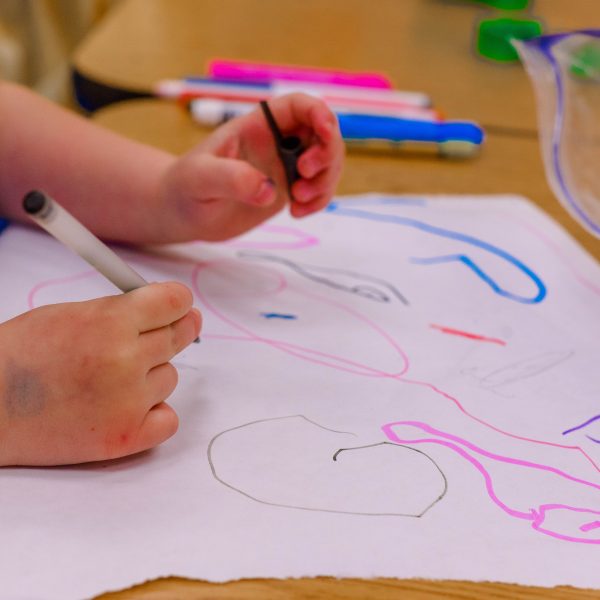Returning to personhood in early childhood teacher education

It has been brought to my attention more than once in my life that my job as an educator for teachers is about making sure that graduates are knowledgeable and have the skills of teaching content well.
I am often surprised by these comments because the last thing people usually remember about their teachers is whether or not they were top experts in their fields.
What people inevitably remember is how teachers treated them. They divide teachers into ‘good’ and ‘bad’ based on their interactions, and how their teachers made them feel.
I have read numerous undergraduate essays in which students share memories of how they were bullied by a particularly ‘evil’ teacher or how the only reason they ever did well in school was because of that one teacher ‘who really believed in them’.
This has made me reflect deeply and often about what it is that I do in my job as an early childhood lecturer. I have wondered for years now about whether teacher education focuses on what it should focus on, or whether it gets caught in minor details.
The missing ingredient, I have determined, is ‘personhood’ – a culturally and historically situated way of organising your values, emotions and actions in order to relate to others in ways that are aligned with professional standards and your own values. Personhood is not personality or identity. Personhood is our long-term development, participation and action in society as unique individuals.
The current state of teacher education is such that early childhood education students are engaged in higher education processes that aims to help them get a University degree, and at the same time obtain a professional status of a teacher.
Like most students in other fields, pre-service teachers take academic units that engage them in reading, writing, discussing, presenting and creating. Some units have a component that is linked to practice. In practice-based units, students work with children in early childhood settings and bring their reflections to the University to be able to work with their peers and lecturers in classes.
Pre-service teachers also have several practicums during their course. Courses differ, of course, depending on whether they are TAFE courses, undergraduate or postgraduate courses.
The bottom line is that most courses are governed by a number of regulations that specify what pre-service teachers should achieve:
- Academic learning outcomes (e.g. critically reflecting on a theory)
- Graduate attributes (e.g. thinking critically and reflectively)
- Graduate teacher standards (e.g. including a range of teaching strategies)
- ACECQA criteria (e.g. developing knowledge of socially inclusive practice).
In one unit, a pre-service teacher may be working towards about 30 different standards.
Interestingly enough, only two or three standards relate to the pre-service teachers’ personhood. The documents and syllabus that tertiary educators work under do not specify what kind of person a teacher should be. Should a teacher exercise kindness and compassion? Should a teacher be able to resolve conflicts successfully? Should a teacher be able to relate to others in deeply meaningful ways?
Although vitally important to the future success of teachers, and the overall wellbeing of children, these questions are not explicitly raised, and the correct responses not explicitly taught, within the curriculum provided to tertiary educators.
The general assumption is that pre-service teachers learn about these attributes during their practicum placements. However, I believe it is not possible to go through deep personal transformations in 90 days across the four years of an undergraduate degree.
I hope I am not alone in believing that over the years we have lost sight of what is important and crucial in teacher education. We have lost sight of the actual teacher.
The standards mentioned above segment a pre-service teacher into knowledge, skills and capabilities. Most of the standards are formulated in such a way that they could be measured. Clearly, it is physically, philosophically and ethically challenging to measure personhood. Hence, we have built a system of teacher education in the context of neo-liberalism and have placed accountability in the centre of the education process. Personhood has been pushed out.
I believe that we need to bring personhood back. In my own lecturing practice I work on building up structures and processes that create opportunities for pre-service teachers to work on crucial personhood attributes, such as developing a positive attitude towards challenges and stress; developing their own resilience; increasing empathy towards the experiences of others; and, developing their own sense of empowerment.
I maintain that students develop better professional skills if they are aware of their own personal growth, exploring their own journeys as learners, and reflecting on the attributes they will need to cultivate or grow in order to be stronger leaders.
In my own practice, I create a strong supportive academic structure so that students have extra time and opportunities to deal with personhood growth challenges. I also lower my own authority and become a person who mentors, inspires and supports, rather than simply getting them from one academic result to the next. I create situations of authentic success where students can see their own results.
In a unit titled ‘Action Research’, students are asked to do their own research project in an education setting. The unit is timed to coincide with the end of their degree, a time when students report feeling ‘very tired’ and appear to be quite stressed.
A large part of the ‘Action Research’ unit consists of supporting the students to be at peace with uncertainty. Coming into the unit, students are often only interested in how the assessment task is to be done, and what is required to pass.
To support them in focusing on personhood rather than the process of gaining a grade, I spend a lot of time in class having emotive conversations about the reasons why they would want to research something.
We visualise how they can use the results of their project for their job interviews, and how they can continue working on their project of interest once they achieve their dream job.
In every class, I use positive affirmations, with a particular focus on the term empowerment.
At first, the students often laugh at me as I call them ‘empowered teachers who are able to make their own decisions’. By the middle of the unit, students begin to use the term ‘empowerment’ with less humour as they begin to see that their own decisions work and that they get respect for moving their project further.
My style of teaching is more about facilitating work on projects during the class, rather than formal teaching. I ask them to ‘create’ and ‘share’ the product of their work with others.
When they talk, I ask them about how they felt when they made decisions and worked on something that would be such a great tool in the future. By facilitating meaningful conversations and persevering with working on empowerment, in 12 weeks students no longer talk about the grades they will receive. In place of talk about grades, I observe professional conversations about improving education practices and those conversations are coming from a place of empowerment. Students share with me that they feel a change in themselves and they see their up-coming career in a different way.
I have to note that it is extremely challenging to do what I have described above in the current teacher education system. For a tertiary educator to stand in such a space, they too must engage in an exploration, and determine what it is they believe a student needs to become in order to be a fully developed ‘teacher person’ prior to graduation.
Accountability and standards are often in the way of creating contexts within which pre-service teachers can transform their personhoods.
Yet, this is what we need in the 21st century – teachers who are strong, resilient and compassionate and are able to help children’s personhood growth.
Popular

Policy
Practice
Quality
Provider
Research
Safety starts with supervision: responding to real risks in ECEC
2025-07-07 10:30:58
by Fiona Alston

Policy
Provider
Practice
Quality
Jay Weatherill appointed to co-lead urgent review into childcare safety in Victoria
2025-07-07 07:24:04
by Fiona Alston

Quality
Practice
Provider
Workforce
Reclaiming Joy: Why connection, curiosity and care still matter in early childhood education
2025-07-09 10:00:07
by Fiona Alston













